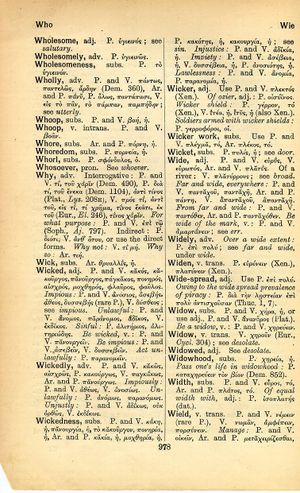why
From LSJ
Θεοῦ γὰρ οὐδεὶς χωρὶς (ἐκτὸς οὐδεὶς) εὐτυχεῖ βροτῶν → Nullus beatus absque numine est dei → Glückselig Gott allein und sonst kein Sterblicher
English > Greek (Woodhouse)
adv.
Interrogative: P. and V. τί, τοῦ χάριν (Dem. 490). P. διὰ τί, τοῦ ἕνεκα (Dem. 1104), ἀντὶ τίνος (Plat., Lys. 208E), V. πρὸς τί, ἀντὶ τοῦ, εἰς τί, τί χρῆμα, τίνος ἕκατι, ἐκ τοῦ (Eur., El. 246), τίνος χάριν.
For what purpose: P. and V. ἐπὶ τῷ (Soph., Aj. 797).
Indirect: P. διότι; V. ἀνθʼ ὅτου, or see the direct forms.
Why not: V. τί μή.
Why so: Ar. τιή.

